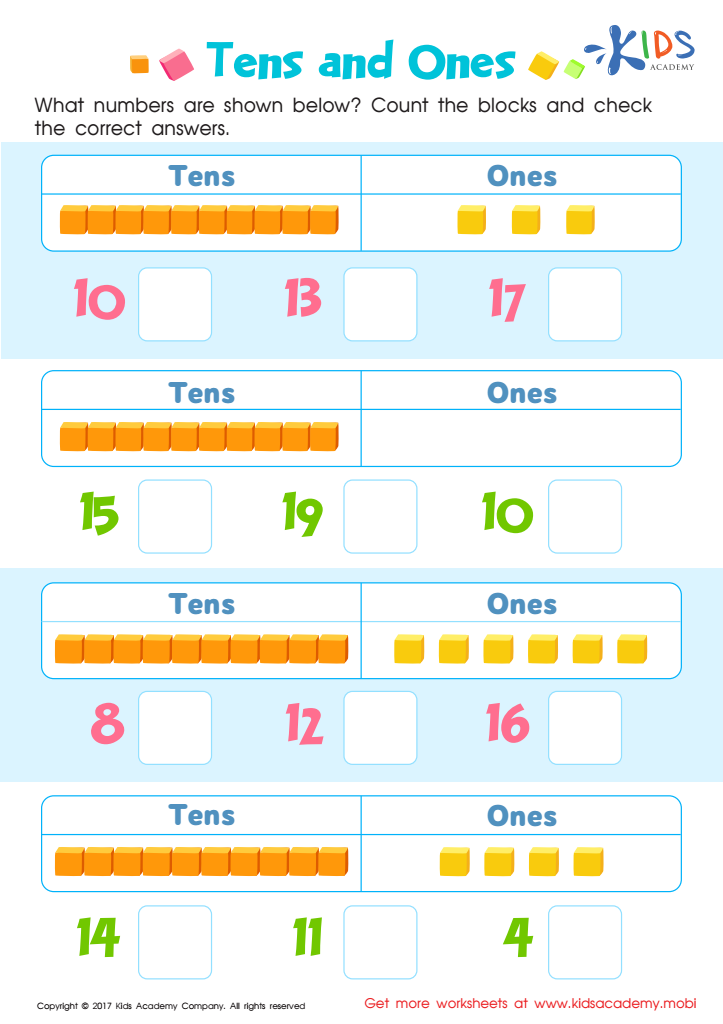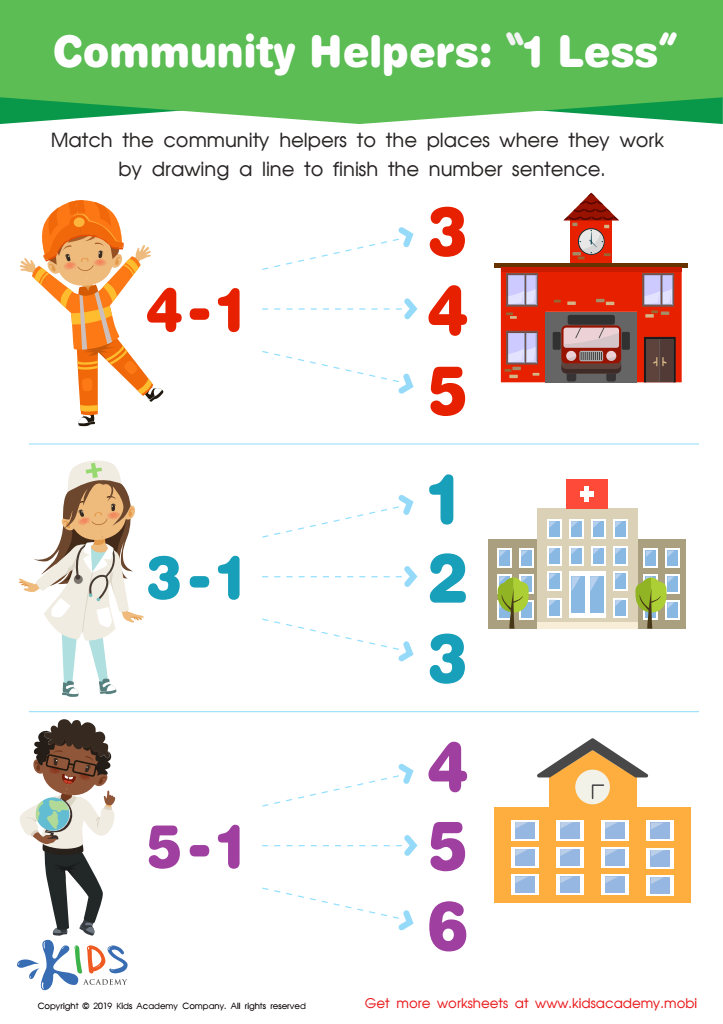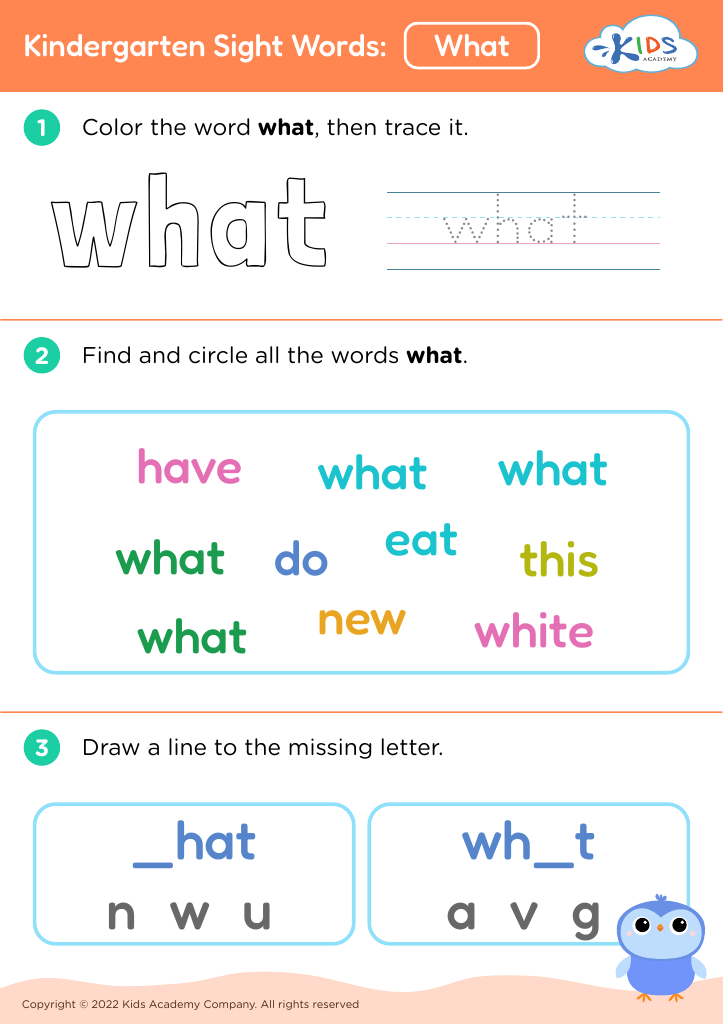Recognizing numbers Worksheets for Ages 3-5
4 filtered results
-
From - To
Introduce your child to the wonderful world of numbers with our "Recognizing Numbers Worksheets for Ages 3-5!" These fun and engaging printable activities are designed to help young learners identify and understand numbers through colorful visuals and interactive exercises. By exploring number recognition, counting, and basic math concepts, your child will build a strong mathematical foundation while boosting their confidence. Perfect for preschoolers and kindergarteners, our worksheets offer a playful yet educational approach to early learning. Download now and watch your little one develop essential skills while having a blast!


Tens and Ones Worksheet


Community Helpers: 1 less Worksheet
Understanding and recognizing numbers at an early age, specifically between the ages of 3-5, is more than just a fundamental educational milestone—it’s a cornerstone for a child’s future academic success and overall cognitive development. At this age, children are naturally curious and their brains are highly receptive to new information. Introducing number recognition during this formative period helps to establish a strong mathematical foundation, which is essential for more complex math concepts encountered in later years.
Recognizing numbers aids in developing a child’s numerical literacy, which directly influences their ability to perform basic arithmetic operations such as counting, addition, and subtraction. Moreover, it also enhances problem-solving skills and logical thinking. When children recognize numbers, they begin to understand quantity and the concept of more or less, which solidifies their sense of value and measurement.
Beyond academic advantages, early number recognition boosts confidence and fosters a positive attitude toward learning. It encourages kids to become engaged and active learners, making them better prepared for structured schooling environments. Parents and teachers acting early on this aspect of education also provide children with opportunities to interact socially as they participate in group-based counting games and activities, fostering not just intellectual growth but social skills as well. Recognizing numbers, therefore, plays an essential role in laying the groundwork for a well-rounded, knowledgeable, and confident individual.

 Assign to My Students
Assign to My Students


















